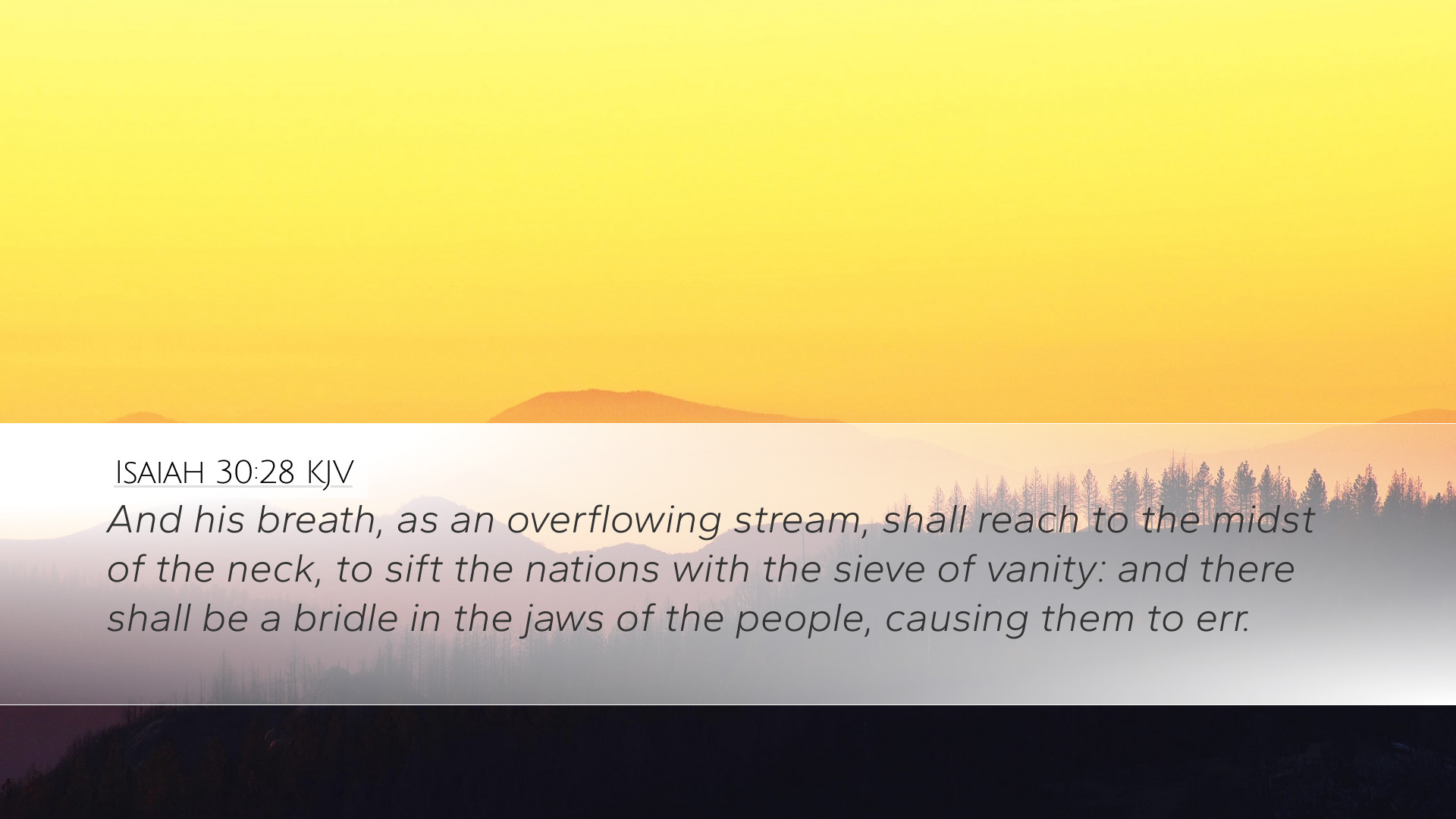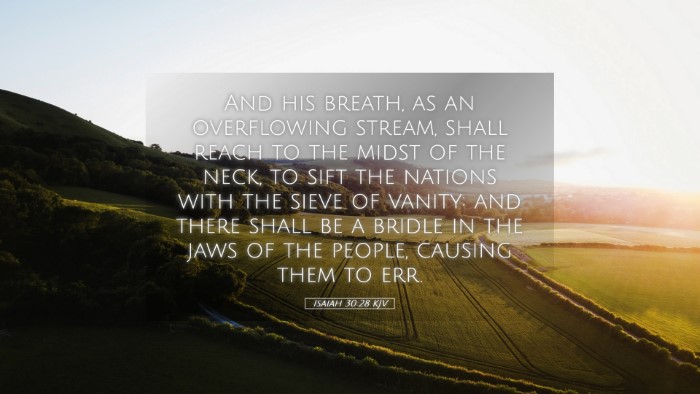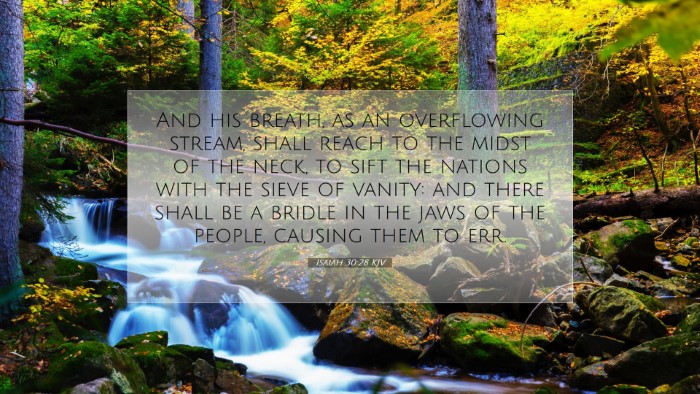Isaiah 30:28 Overwiew
Verse: "And His breath, as an overflowing stream, shall reach to the midst of the neck, to sift the nations with the sieve of vanity: and there shall be a bridle in the jaws of the people, causing them to err."
Introduction
The verse in Isaiah 30:28 carries profound significance, containing divine imagery that conveys God's judgment and the resultant sifting of nations. The weight of this scripture invites deep reflection for theologians, scholars, and ministers inclined to understand God’s nature, His methods, and the future of His people.
Exegesis and Commentary
Matthew Henry's Commentary
Matthew Henry emphasizes that this passage illustrates God’s furious judgment against obstinate and rebellious nations. He depicts God's breath as an overflowing stream, highlighting the forcefulness of His divine will. This imagery stands in stark contrast to the weakness of human plans and desires.
- The Nature of God's Judgment: Henry notes that God’s judgment is not arbitrary but carefully measured and intentional. The 'sieve of vanity' signifies the scrutiny under which nations will be placed, revealing their true character.
- Sifting the Nations: The process of sifting suggests a thorough testing, with only the pure elements remaining. The emphasis on 'vanity' indicates that worldly strength and accomplishments stand in stark contrast to God’s eternal righteousness.
- Bridle in the Jaws: The imagery of a bridle controlling the mouths of the people further illustrates God's sovereignty over human affairs. By causing people to err, it hints at their moral failing due to the rejection of divine truth.
Albert Barnes’ Notes
Albert Barnes explores the implications of God’s breath depicted as a strong stream. He identifies the 'sieve of vanity' as a metaphor for the judgments placed upon those who lean on their own understanding and forsake God’s guidance.
- The Overflowing Stream: Barnes interprets this 'stream' as the overwhelming nature of God’s punishment, which reaches deep into the lives of nations up to 'the midst of the neck'. It signifies an effective yet overwhelming influence that aligns with God's prerogative to command nations.
- The Importance of Righteousness: Further, Barnes stresses that the passage calls for self-examination among nations regarding their adherence to righteousness. Those who disregard God will find themselves not only sifted but severely punished.
- Breaking the Stubbornness: The 'bridle' symbolizes God’s corrective discipline, which indicates that nations may initially err but can be led back to truth through divine intervention.
Adam Clarke’s Commentary
Adam Clarke provides a nuanced view, stressing the poetic quality of Isaiah's writing. He sees the 'overflowing stream' metaphorically representing God’s overwhelming power and relentless judgment upon those who oppose His will.
- Divine Metaphor: Clarke posits that the use of metaphor highlights the profound nature of God’s power, intended to be awe-inspiring. This divine flow is uncontainable and serves as a means for both judgment and salvation.
- Understanding Vanity: Clarke expounds upon the concept of 'vanity', arguing that this passage serves as a stark warning against trusting in worldly power or wisdom, which ultimately leads to spiritual barrenness.
- Restorative Purpose: Moreover, Clarke expresses optimism in God’s disciplinary methods, portraying them as foundational for returning to faith. The bridle signifies mercy even in discipline, implying that God desires repentance over destruction.
Theological Implications
This verse invites significant theological inquiry regarding the nature of God’s wrath and grace. The dual images of judgment and guidance reflect divine sovereignty while simultaneously hinting at God's call to repentance for His people.
Judgment and Mercy
The simultaneous act of sifting and bridling reveals the complexity of God’s relationship with humanity. While He is just in His judgment, He is also intent on drawing people back to Himself, showcasing His desire for restoration over mere punishment.
Human Response
Understanding Isaiah 30:28 necessitates a call for self-examination among believers and nations today. Just as the nations were sifted through a sieve, so must modern believers reassess their foundations and ensure they are rooted in divine truth rather than worldly wisdom.
Conclusion
Isaiah 30:28 serves as a poignant reminder of the tension between judgment and mercy within the divine narrative. It underscores God’s ability to use opposition and rebellion as a tool to refine and redirect His people toward righteousness. As such, this verse is a rich resource for reflection and application in the lives of pastors, students, theologians, and scholars, imploring them to consider their alignment with God's sovereign will.


